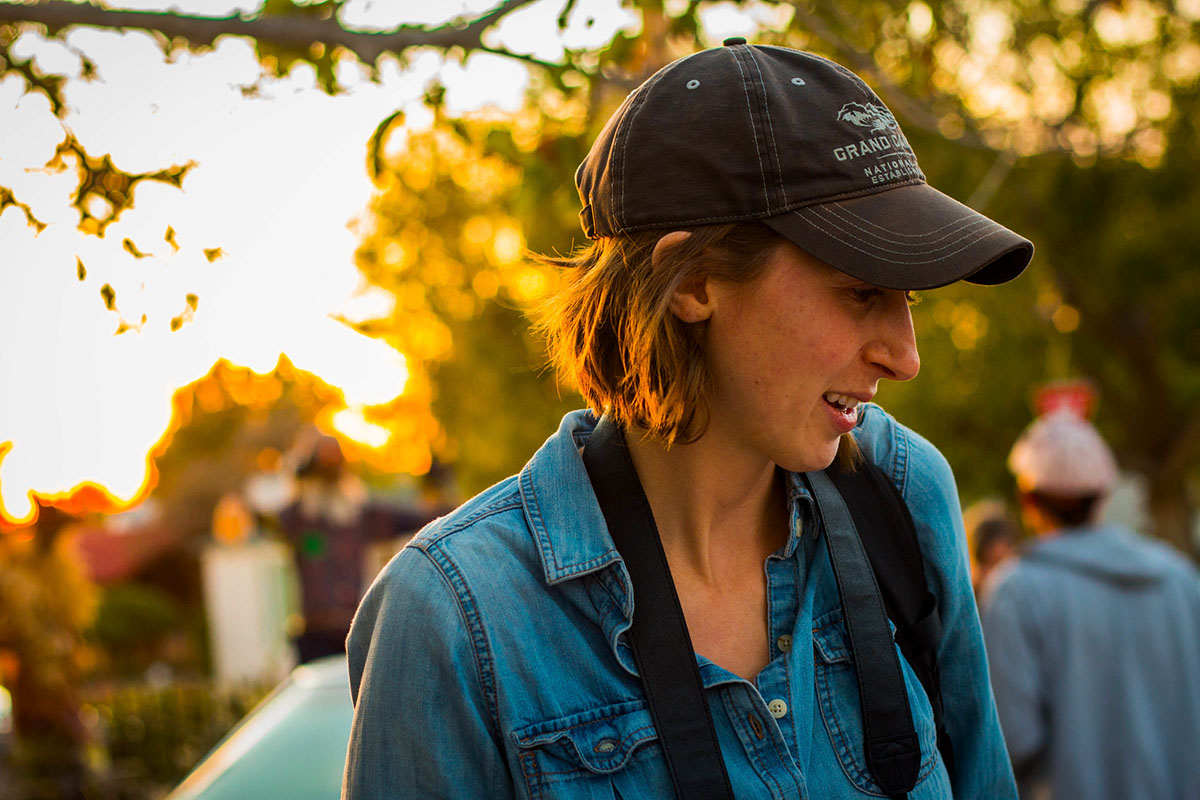IDA Member Spotlight: Allison Walsh

Allison Walsh is an independent documentary filmmaker, freelance videographer and fine artist, who is committed to political advocacy and documenting social issues in the Midwest. Walsh’s films have screened around the world, including Paris Art and Movie Awards, Festival Sayulita in Mexico, BSF in Barcelona, and Pride Film Fest, Femme Filmmakers Showcase in Chicago. Walsh is the founder and program director of the Big Picture Film Festival, an international film festival in Peoria, Illinois. She is a recipient of the Kartemquin Emerging Storytellers Fund, Illinois Arts Council Individual Artist Program), and the Acorn Equality Grant, awarded to work that positively impacts the lives of LGBTQ+ persons and allies. She has been invited to speak about her films at Western Illinois University and the El Paso Museum of History.
IDA: Is there any particular project you’ve worked on that helped shape the trajectory of your career?
ALLISON WALSH: When I started my first film, Parallel Lines, I was finishing a degree in painting and spanish. In 2016, I was horrified at our political discourse around the US-Mexico border. I wanted to combat it, I wanted to learn. I researched, applied for grants, and then finally traveled to El Paso and Juárez (where my cousins live) to start this project. I asked questions with humility and learned about what life was like in these cities, beyond the shallow news headlines. The result was a transformative experience where I found so much love, a shared culture, and family on both sides of the border. I was so humbled by the way the community collaborated with me, in front of and behind the camera.
IDA: What drew you to want to tell the story of your current film, Teaching About Religion (working title)?
AW: Ten years ago, I was a student in John Camardella’s World Religions class at Prospect High School, and the experience was deeply transformative for me. I was never a studious person, but I discovered a passion for learning and I connected with classmates of different faiths in ways I never imagined.
When I decided to direct Teaching About Religion, I was interning at Kartemquin Films in Chicago and I was eager to try vérité filmmaking. I decided to follow the 2019-2020 school year as students learned about this material for the first time and had their own transformations. I documented students of different faith backgrounds and filmed with them in their homes and houses of worship, to better understand what each student was bringing with them when they entered the classroom.

IDA: What has your experience been like as an IDA member?
AW: I originally joined IDA for fiscal sponsorship and I’ve had such a great experience. We are a small team that is constantly applying for grants, so the fact that the fiscal sponsorship program is so organized has been a huge help to us. Also, I live in Central Illinois, so I appreciate the ways that IDA helps me stay involved in the documentary world, from Documentary magazine, free virtual screenings, and the newsletter.
IDA: As 2021 comes to a close, what is one thing from the past year that you are grateful for in your nonfiction community?
AW: Looking back on 2021, I’m really grateful for my Teaching About Religion team. My main crew is a small group of wonderfully talented women, and we have the best consultants and advisors who have mentored us and cheered us on this year. Since this is my first feature-length film, I’m learning about a new kind of patience I haven’t experienced before. After years of working on the same project—adapting the story, filming more and more, and editing through hundreds of hours of content—I am so grateful every time we get to meet in person for our rough-cut meetings. For all of the struggles of the past few years, I have come to realize that spending a day with my friends, talking about engaging ideas that we’re all passionate about, and crafting an art piece together is a really wonderful thing. Of course we have huge goals for 2022, but I’ve learned that goals can only be accomplished one day at a time, and there’s nothing wrong with intentionally finding joy in each of those days.